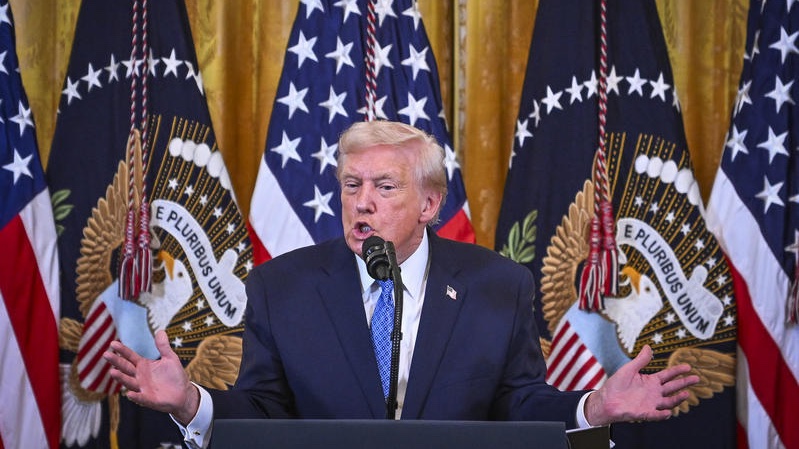(JNS) While many in Israel support the country extending sovereignty over Judea and Samaria, opposition has come from elsewhere in the Middle East and beyond.
Arab countries object because these areas are strategically and politically vital to Israel. It is also part of a spiritual war being waged regarding who is the rightful heir of Abraham, the father of Judaism, a battle that includes the sovereignty over Judea and Samaria, over Jerusalem, and over who can pray on the Temple Mount.
Whenever Israel wants to turn a military win into a victory march, the world cries foul. Israel can win wars, yet diplomatic defeats follow.
But a real win in war means that the enemy losses a strategic territory, such that the enemy is impoverished by it, whether it’s the loss of minerals or oil, the loss of a mountain range that bestows tactical leverage or the loss of a commercial port. Without a loss of something of significance in the language of nationhood, the conclusion of war simply leaves in place the status quo. But the status quo is what led to a war, initially.
If the status quo led to a war, the return to the status quo will surely lead to another war.
Why can’t Israel understand this simple corollary? It is true that every time Israel starts down the path of declaring sovereignty over the territory of the vanquished, the world erupts into vitriolic threats, causing angst. But this cannot induce national amnesia of the numerous times Israel offered or gave “land for peace” in 1957, 1967, 1973, 1994-1995, 2000, 2005, 2008 and 2020.
So how can a small country in a dangerous region and dependent on the support of one superpower, not bend its knee to the world’s demands? Who would advise Israel to choose further isolation, condemnation and recrimination by declaring sovereignty? But on the other hand, can Israel afford to keep replaying the same script, with the same dire outcomes, in the aftermath of the multifront wars it just won?
The first step toward coming to the right answer for this existential dilemma is through the proper analysis of Israel’s enemies’ goals. Unreformed Arab countries wish to keep Israel as the focus of their indigenous populations and not on the ruling class. They also want to maintain the theocratic ideal that Islam, the superior and supreme religion, is to be installed in all parts of the Middle East as a harbinger to its installation the world over.
Even though this agenda is quietly evident, somehow, time and time again, Israel recompenses its enemies. How is it possible that Israel does not learn that appeasement doesn’t work in its favor, in the long term, because it allows the enemy to hold onto the above agenda?
Now, President Donald Trump is using the Abraham Accords to thwart Israel’s efforts to make the necessary historic moves to undermine the Arab world’s mission. While Israel and the United States benefit from the Abraham Accords in the short term, it is only Trump and the United States who gain in the long term.
Trump wishes to enshrine his legacy as a peacemaker by resolving world crises in rapid succession. He wants to be recognized as the ruler-savior who ushered in the rule of law and the blessings of God in every region.
For Israel, this works well in the short term. If Trump can instill fear in the hearts of her enemies and get them to back off for three years, who wouldn’t welcome that paradigm in the Mideast? But where does that leave Israel once Trump is no longer residing on Pennsylvania Avenue?
Israel has not once roundly humiliated its enemies, sending the message that their aspirations are unachievable and that they will never have sovereignty over Israel, Jerusalem or bar Jews from the Temple Mount.
Trump’s 20-Point Mideast Plan promotes Trump, which some people may not mind or may find mildly amusing when he takes too much credit for the back of Israel’s efforts, but the plan doesn’t guarantee Israel’s long-term security.
Let’s face the reality: Arab countries don’t want Israel to be sovereign over Judea and Samaria because they want it to morph into a Palestinian state. They want the Palestinian state to one day defeat the Jewish state and take over all of the land. Toward this goal, preventing Israeli sovereignty is prophylactic; most Arab states are not interested in anything other than short-term co-existence and peace with Israel.
It is Trump, not the Arab states, who is heralding “the end of an age of terror and death, and the beginning of the age of faith and hope and of God,” as he said during his Oct. 13 Knesset address. He mentioned that he had to leave Israel to attend the summit at which the United States, Qatar, Egypt and Turkey signed his memorandum calling for Israel’s regional integration. Yet the next day, a senior Turkish official confirmed that his country’s president, Recep Tayyip Erdoğan, blocked Israeli Prime Minister Benjamin Netanyahu from attending the summit by threatening to boycott the meeting. So much for regional integration.
If regional integration were truly being embraced by Israel’s Arab neighbors, they would agree to Israel’s sovereignty over the country’s heartland. It wouldn’t be, “Israel must give up rights to land for peace.” It would be, “The victor takes the spoils in exchange for accepting the enemy’s surrender,” which is what the world has always understood.
Israel must look over the horizon to the days after January 2029, when Trump is no longer in the White House and the next American president may be more like former President Joe Biden than Trump. Or, it could be JD Vance, who showed his true colors on Oct. 23, when the Knesset passed the first reading of a bill to extend Israeli law to Judea and Samaria, calling it a “very stupid political stunt.”
Even if the Knesset bill was proposed by the opposition rather than the governing coalition, it was obtuse to call Israel’s aspirations to be sovereign over the areas from which Hamas still launches acts of terrorism, with compensation, a “stupid political stunt.” Vance then self-righteously proclaimed that he “personally take[s] some insult to it.” Vance can’t bear to witness Israel flexing her muscles at her enemies, particularly on his watch.
Just the day before, Vance proclaimed, “[w]e don’t want in Israel a vassal state . . .”, and Netanyahu echoed that sentiments when he told the Shin Bet that Trump and his administration “want a strong and independent Israel.”
I have news for Vance and Netanyahu. Mr. Vice President, you want an ally when Israel controls the skies over Iran, making it possible for your B-2s to execute a textbook military victory. And you want an ally when Israel provides you with high-stakes intelligence and advanced cyber technology. But you want a vassal when Israel votes in its own, democratically elected Knesset to further its strategic military and political agenda in Judea and Samaria. The prime minister must realize that Trump and some of his immediate team want him to do exactly as they dictate, regardless of what Israel’s independent security interests demand. They are on board for the Israel Defense Forces and the Israel Air Force to decimate Iran and Hamas, which furthers America’s foreign policy agenda, but not with Israel doing the victory march if it upsets Qatar and Turkey.
Therefore, let’s stop refusing to acknowledge that our enemies want to hold us back so they can establish a state, not to have peace with us, but to destroy us when the time is ripe.
History informs us that appeasement does not work to our benefit in the long term.
Furthermore, we need to push back on Trump when he steps over the line, such as when he told Qatar, Jordan, Turkey, Pakistan, Indonesia, Egypt, the United Arab Emirates and Saudi Arabia on Sept. 23 that Israel will not declare sovereignty over its heartland.
Consider what Trump told Time on Oct. 15 regarding the bombings in Doha, that as much as he condemned Israel, “this was one of the things that … got everybody to do what they have to do.”
In other words, without Israel having targeted Hamas leaders in a bombing in Doha, 48 hostages would still be in Gaza because those bombs were what lit a fire under the throne of the Qatari ruling family.
Also consider that Trump told the Knesset that with America’s help, Israel “you’ve won … and you’ve done the right thing in defending yourself.”
And Israel needs to continue doing the right thing by defending the Jewish people, which includes making the Jewish heartland, Judea and Samaria, a part of the Jewish state.
Trump has said that if Israel is strong, assertive and innovative, then he will support the Jewish state. He implied that if Israelis allow ourselves to be lulled or bullied into submission with the promise of “regional integration” via the Abraham Accords, instead of forcefully asserting our national interests, he will abandon us. Noting that the State of Israel is strong, Trump said that is why “Israel will always remain a vital ally of the United States of America.” He also credited the Jewish state with having “one of the world’s most powerful militaries” and “one of the most innovative economies on earth.”
If Israel is strong, assertive and innovative, the Trumps of the world and their countries will support it. It’s time to begin anew, using a different tactic and script, humming a new tune and achieving a new outcome.
Want more news from Israel?
Click Here to sign up for our FREE daily email updates














